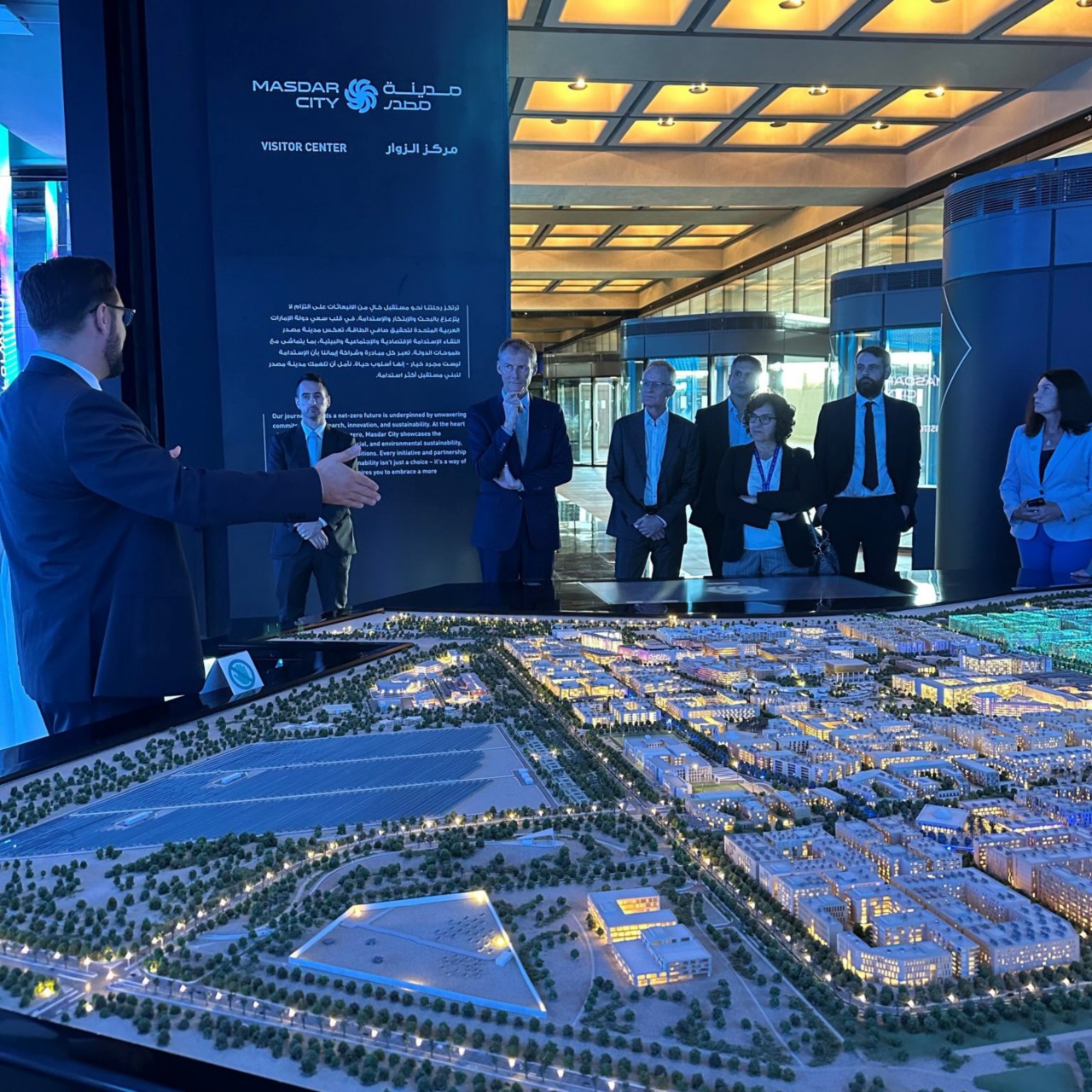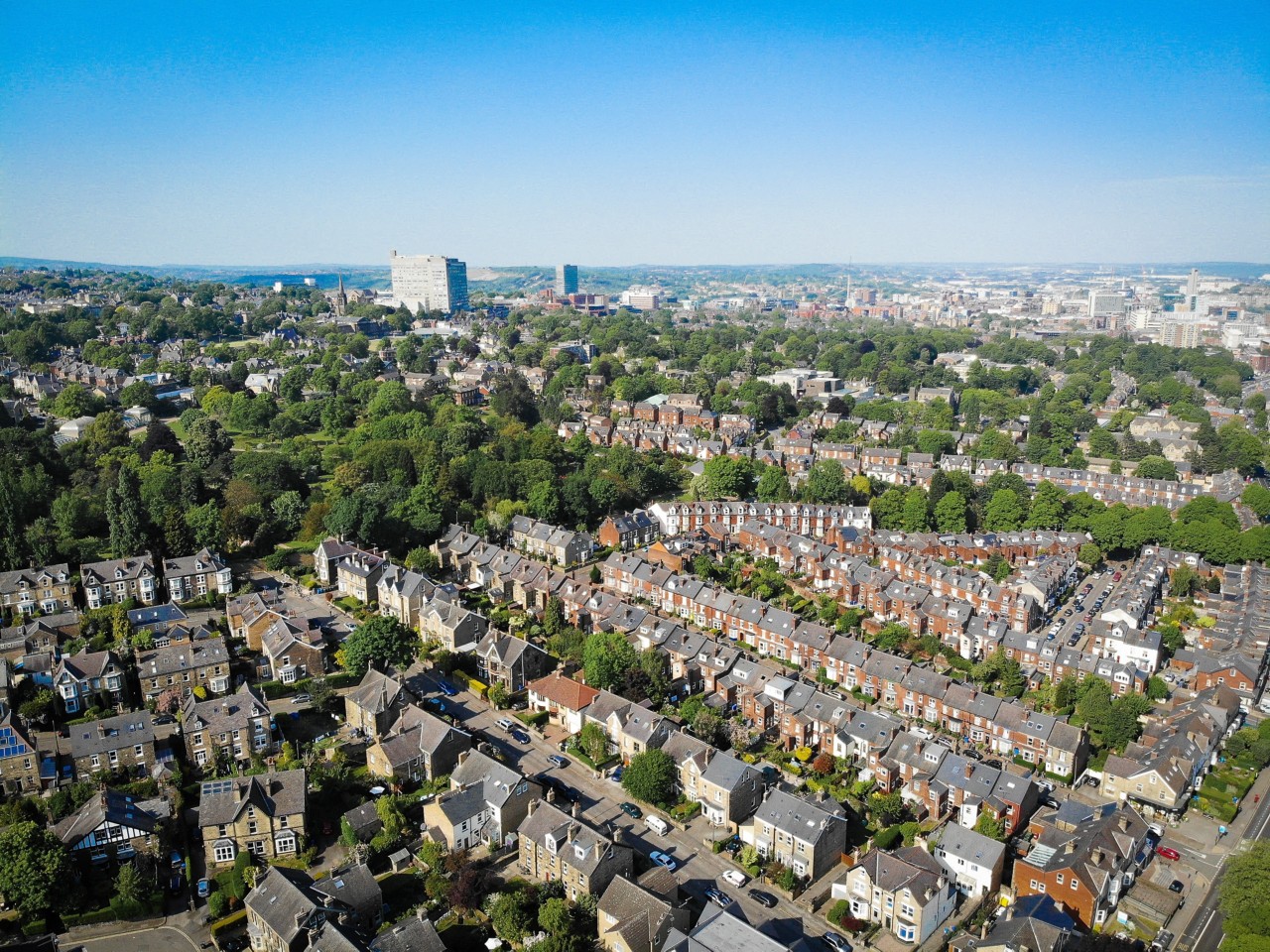With the built environment estimated to be responsible for around 40% of global carbon emissions, RICS working with members and key stakeholders plays a vital role in ensuring we collectively reduce our carbon consumption across the built and natural environment life cycle.
Our focus is to help:
- decarbonise the built environment
- build climate resilience
- promote and protect biodiversity and
- embed circular economy principles.
Whole life carbon assessment
RICS launched the professional standard Whole life carbon assessment (WLCA) for the built environment, 2nd edition, in September 2023, supported and approved by the SRB. Covering all built assets and infrastructure across their entire life cycle, this publication is set to become the world-leading standard for consistent and accurate carbon measurement in the built environment.
Giving visibility to the carbon cost of different design choices, the standard aims to help manage carbon budgets, reduce lifetime emissions and deliver a net-zero future for the built environment. It is also a great example of RICS drawing on its members’ expertise, with more than 1,300 consultation responses informing the final document.

A launch event was held in our London HQ, where we heard from a panel of experts including lead author Simon Sturgis, Giorgia Albieri (Department for Transport), Kay Tor (Infrastructure Projects Authority) and Mark Rogers (Turner & Townsend). The event was chaired by Amit Patel (RICS Head of Professional Practice – Construction).
RICS President Elect, Tina Paillet, gave opening remarks and summarised the significance of the standard in the context of the climate change crisis:
‘ … we need common standards that provide consistent assurance and confidence that decisions about land use, building and infrastructure construction and property management are well-founded, defensible and effective, adopting long-term thinking about reuse, recycling and redevelopment.’

The WLCA standard becomes effective on 1 July 2024. RICS is now developing training and accreditation to support members in its implementation, ensuring RICS members can become the go-to professionals for carbon measurement and carbon certification for the built environment.
A number of UK governmental departments and bodies have specified the use of RICS’ WLCA standard, including Defra, Scottish Futures Trust, the Strategic Investment Board in Northern Ireland and a number of local authorities in Wales. This is an important step for transitioning the UK’s public-sector projects towards net zero.

COP28
RICS was an official observer at COP28 in Dubai, meeting key figures from government and industry. This status allowed RICS staff members, including CEO Justin Young and then President-Elect, Tina Paillet, to take part in high-level discussions about the importance of the WLCA standard and the role that the profession plays in decarbonising the built environment.
Alongside COP, we ran a joint conference with the UK-UAE business council to discuss what the industry can do to decarbonise in the two regions more broadly. The conference was also an opportunity to promote RICS’ WLCA standard, which is increasingly being seen as the primary assessment methodology by international partners such as the ICMS Coalition.
To coincide with COP28, we released case studies highlighting how members are already addressing climate change, as well as a number of policy reports suggesting actions for governments in key markets.
The Global Alliance for Buildings and Construction (GlobalABC) under the UN Environment Programme (UNEP) has invited RICS to be a supporting partner of the Buildings Breakthrough, specifically on priority action B1: Standards and Certifications.
A major development was the UN-led, 27-nation Buildings Breakthrough Initiative. The signatories, including China, France, the UK and the US, cover a third of the world’s population and provide two-thirds of global GDP. Signatories committed to making near-zero emissions and climate-resilient buildings the new normal by 2030. RICS signed up to this commitment, and we attended a follow-up ministerial meeting in March 2024.

9 million
reached by RICS COP28 press coverage
1,500
extra followers on social media
1,200
WLCA standard consultation comments
4,800
downloads of WLCA standard

‘RICS was excited to be present at the beating heart of the upcoming COP28 conference in Dubai. By granting RICS observer status, the UN recognises the importance of including the built environment and RICS as a sector representative in the conversation on climate change.’
Justin Young
RICS CEO

Decarbonisation of UK real estate
RICS has been promoting the role of the profession in the decarbonisation of the built environment. We have secured adoption of the Built Environment Carbon Database by Defra, Scottish Futures Trust and Lloyds Banking Group, who will all use or stipulate the use of this tool for carbon estimating and benchmarking of construction projects. BECD is free to access and designed to become the main source of carbon estimating and benchmarking for the industry. RICS collaborated to develop the tool for the UK.
We published an addendum to our report on Decarbonising the UK real estate, which was launched at COP28 in Dubai.
In December, we published our 2023 sustainability report, which draws on questions in our global construction and commercial surveys. Occupier and investor demand for green buildings has risen globally, although initial costs are still an issue for investors. However, the report highlighted a lack of measurement, which our new WLCA standard aims to address.
RICS student competition 2023
RICS launched a student competition where we invited school and university students from around the world to participate and share their innovative ideas on how we can accelerate the decarbonisation of the built environment. We asked them to propose a practical solution in one of five key areas: policy, technology, society, finance or skills.
We are pleased to announce this year’s RICS global student competition winners Jen Yee Long and Yap Jia Hui from Malaysia, currently both studying for a Bachelor of Quantity Surveying (Honours) at Tunku Abdul Rahman University of Management and Technology.
Their submission, Decarbonising homes: rainwater to green hydrogen in Malaysia, showcased an innovative technological solution to decarbonise homes by converting rainwater to green hydrogen through the process of electrolysis.

‘I believe in the power of informed dialogue, and winning this competition motivates me to continue advocating for a sustainable future. Thank you to RICS for this incredible opportunity, and I look forward to contributing meaningfully to the discussions at the WBEF.’
Jen Yee Long

‘Winning this competition not only signifies my commitment to the critical cause of decarbonising the built environment but also underscores the importance of collective efforts in shaping a sustainable future. Thank you RICS for fostering a platform that encourages meaningful dialogue and innovation in the field of environmental sustainability.’


